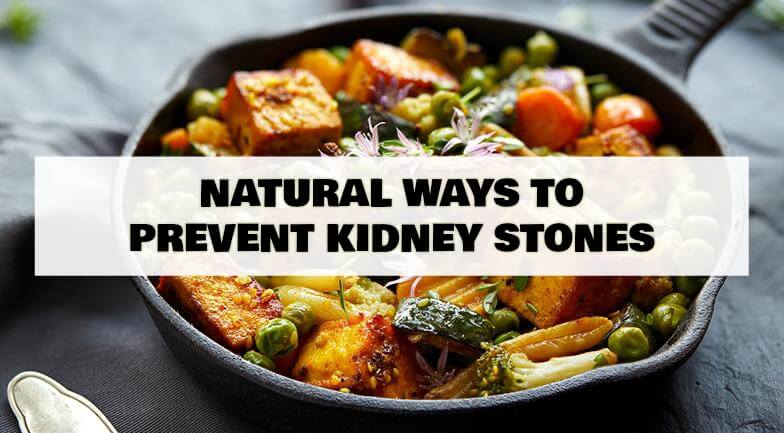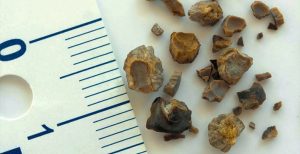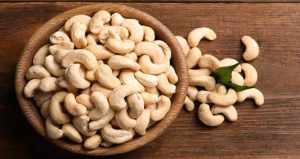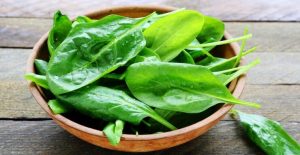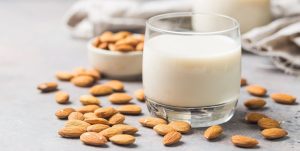According to Mayo Clinic: kidney stones — also called renal calculi or nephrolithiasis in medicine — are hard deposits made of salt and minerals that form in the kidneys.
Kidney stones are known for the pain patients experience while stones pass through the urinary tract. It is believed that approximately one in ten people will experience kidney stones at some point in their lives.
Therefore, it is safe to say that kidney stones are a common health issue.
As kidney stones are common and the pain is almost unbearable, many people are willing to make lifestyle changes to prevent this health condition.
In this article, we are going to provide natural and easy prevention methods to keep kidney stones at bay.
No one can provide guaranteed methods to prevent kidney stones since there are various risk factors and reasons such as family history, being a man and so forth. That said, the below-given prevention methods may significantly minimise your risk of developing kidney stones.
Please note that evidence from scientific studies and professional viewpoints that support the efficacy of the below-given methods that may reduce kidney stones formation highlighted with red colour.
1- Drink Plenty of Water
It may seem like an easy precaution, however, drinking water or staying hydrated is the first and foremost step against kidney problems including kidney stones. As a consequence of constant insufficient water intake, the risk of developing kidney stones increases significantly.
Water plays a vital role in diluting urine salt which can cause kidney stones. Unless a person regularly drinks a sufficient amount of water, substances remain dissolved in the kidney, thus, leading to kidney stones.
Therefore, it is important to stay hydrated. Experts recommend 8-ounce cups of water or about 2,5 litres every day. In addition to water, beverages like lemonade and orange juice can also help to avoid stone formation in the kidney thanks to their citrate content, according to a scientific study.
2- Eat Calcium-Rich Foods
Calcium intake through foods is quite an important issue for preventing kidney stones. This is explained by the fact that insufficient calcium in the body brings about an increase in oxalate that turns into kidney stones in the process of time.
Therefore, it is important to eat a sufficient amount of calcium through foods. What is more, since vitamin D facilitates calcium absorption in the body, people are recommended to eat vitamin D rich foods and sunbathe every day for 10 to 15 minutes.
Nonetheless, please note that calcium supplements may show a reverse effect and may increase the risk of developing kidney stones. For this reason, individuals meet their daily calcium needs via foods.
3- Reduce Sodium Intake
A high sodium intake is known to cause kidney stones since it increases calcium stones in the urine. Your heart and blood pressure will also get benefit from reducing sodium intake.
This might be perplexing because in the previous section we said calcium intake decreases kidney stones risk. The fact is that high sodium intake causes kidneys to throw calcium via urine without being reabsorbed in the kidneys.
For this reason, limiting sodium intake will help individuals to prevent kidney stones. The National Health Service recommends 2.4g sodium ( 1 teaspoon salt) a day for adults. However, if the person has gone through kidney stones before this recommended amount drops from 2.4g to 1.5 a day.
4- Eat Less Animal Protein
Experts warn people, having the risk of stones, about eating too much animal protein such as meat, seafood etc. This recommendation of ” reducing animal protein intake ” stems from the fact that animal proteins reduce urinary citrate which is a chemical that has a role to prevent stone formation. Therefore, it is important for individuals to know how much protein they consume daily.
Furthermore, if a person has a genetic disposition for kidney stones, daily animal protein intake should be fewer which is — according to Harvard University — no more than a pack of playing cards.
5- Beware of Stone-causing Foods
As mentioned above, oxalate is one of the main substances that cause kidney stones. Therefore, eating too much of foods that contain a high amount of oxalate will increase the risk of kidney stones. This being the case, those who want to avoid kidney stones should consider limiting the consumption of oxalate-rich foods.
Those who suffer from kidney stones and who are genetically prone to kidney stones may be advised by their doctors to avoid completely or minimise the consumption of oxalate-rich foods.
According to the University of Michigan; the following are foods rich in oxalate…
1- Beans
2- Beer
3- Beets
4- Chocolate
5- Coffee
6- Spinach
7- Almonds – (including almond milk, butter and yoghurt)
8- Cashews
9- Oranges
10- Cola
11- soy milk
12- Black Tea
13- Soy Bean
6- Beware of Vitamin C supplements
Nowadays, many people have a tendency to increase their vitamin C intake in order to strengthen their immune systems. Vitamin C is, indeed, quite an important element of the immune system. However, getting them in the form of supplements may cause some health problems.
According to scientific studies, one of these health problems that occur due to vitamin C supplements might be kidney stones. This relationship, in general, is attributed to the human body converting vitamin C — taken via supplements — into oxalate that causes kidney stones.
A scientific study conducted on the relationship between kidney stones and vitamin C supplements found that supplemental vitamin C increased significantly the risk of kidney stones in men.
7- Consume Fiber-Rich Foods
Consuming foods that are rich in fibre can indirectly reduce the risk of kidney stones. Regular consumption of foods that contain fibre can help us avoid digestive problems such as constipation which can increase the risk of stone formation.
For this reason, having a well-balanced diet that is rich in fibre can prevent digestive problems, thus, possibly decreasing the risk of kidney stones. Pears, Raspberries, broccoli, lentils, chickpeas, almond, oats and chia seeds are rich in fibre.
Tarkan is an experienced health writer ( currently more than 600 articles ) and also the founder of this website namely www.neededforhealth.com. His expertise in health stems from in-depth medical research and knowledge which he obtained over the course of many years.
Tarkan enjoys sharing factual knowledge on health, psychology and nutrition. He always aims to deliver evidence-based recommendations, provide links to related scientific studies.
